I’m back! 2020 was a rough year, and 2021 will likely be difficult as well, but I am going to try to get back into blogging and podcasting.
In this first episode of 2021, I explain the new format for my podcast, and discuss three things:
- My thoughts on the response of some Christian pastors and authors on the January 6, 2021 election protest in Washington DC
- Mailbag: How to know you have eternal life and did not commit the unforgivable sin.
- Why God is not just, the Bible does not talk about justice, and how we can respond to injustice.
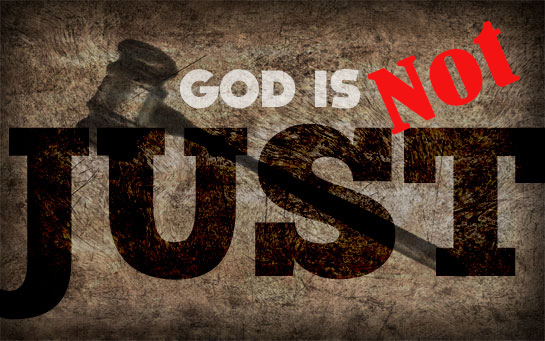
Is God a God of love AND justice? Nope.
On the topic of justice, here is a brief summary of what I say in the podcast, and also what I will be teaching in my soon-to-be-released Gospel Dictionary lesson on justice:
“Justice” is not in the Bible. Indeed, the English word “justice” is not found anywhere in the New Testament of the King James Version.
The trouble with justice begins in the Bible translation. On the one hand, there are several Greek and Hebrew words that often get translated as “justice” and then then are several other English words that are used as translations for the Greek and Hebrew terms.
Usually, translation troubles come from one direction or the other. For example, we have one English word “love” that is often used to translate four different Greek words for love (agape, philia, eros, and storgē). Other times, there are numerous English words that are often used to translate one Greek word, such as both faith and belief being used as a translation for pistis. With the justice word family, both of these translation troubles exist.
With justice, the two main Greek terms are krisis (2920) and dikaiosunē (1342). However, as seen previously, the best translation for krisis is judgment; not justice (see Judgment). In the passages where krisis is translated as justice, the term judgment (and specially, the concept of properly naming or identifying something) is a better translation (cf. Matt 12:18, 20; 23:23; Luke 11:42; Acts 8:33). Therefore, it seems best to always translate krisis as judgment rather than justice.
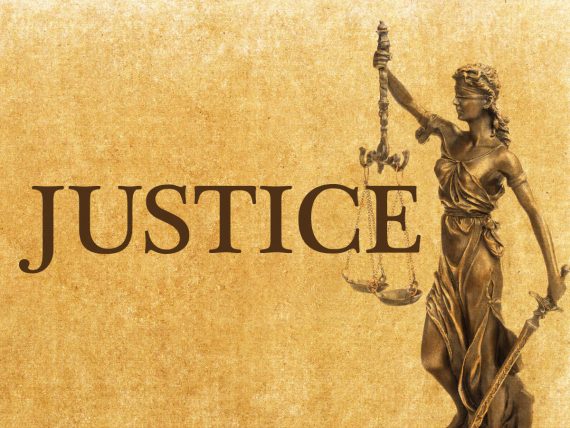
That leaves the dikaiosunē word family. The dikaiosunē word family (including dikē, dikaios, dikaioō) is variously translated as justice, justification, justify, just, and righteousness and a few others. You will notice that the term righteousness and justification have no English semantic connection, and yet they are both used to translate the same Greek term, dikaiosunē. As argued elsewhere in The Gospel Dictionary, it is best, when translating a single Greek term and for clarity’s sake, to pick one English term and stick with it. No English reader who has little knowledge of Greek would ever imagine that a single Greek word lies behind the translation of both righteousness and justification. So it is of immense help to the English reader to pick a single English word (and its word family) as a translation for a single Greek word (and its word family).
With dikaiosunē, we have two English choices. We can choose the “just” word family (justice, justification, justify) or the “right” word family (righteous, rectification—or rightification, rectify—or rightify). Since “rightification” is not an English word, the initial inclination is to go with the “just” word family. However, the Greek term dikaiosunē is most literally translated “to make right.” Since, as seen above, the term justice is so misunderstood and misapplied today, it seems that using the right word family is the “right” way to translate the dikaiosunē word family.
The Hebrew words tsedeq (6664) and misphat (4941) have also been translated as justice, but tsedeq is best translated as “righteousness” and misphat as “judgment.” So again, justice is not in the Bible.
But righteousness is. When humans cry out for justice, what we really want is righteousness. We want things to be set right. And God’s way of achieving righteousness is far better and far different than the human, earthly way of seeking justice. In fact, the two are usually at polar opposites of the morality spectrum. The human methods of achieving justice are often seen as unrighteous by God, while the divine methods of righteousness are often viewed by humans as unfair, unjust, and irresponsible. So it is not true, as people claim, that God is a God of love and justice. Rather, God is a God of love and righteousness, and the two are not at odds with each other.
But justice and righteousness are at odds with each other. Human history, including biblical history, reveals that when humans call for justice, what they really want is vengeance. But God has said that vengeance is His and He will repay (Deut 32:35; Rom 12:19). And how does God exact vengeance? How does He repay people for the evil they have done? Jesus shows us how. When God sets out to repay people for the sins they have committed, He dies for them. He freely forgives them. This “justice” of God does not fit any human definition or understanding of justice.
Human justice calls for people to get what they deserve. To be punished in a similar measurement to the pain they have caused others. Divine “justice” extends only love, grace, mercy, and forgiveness, all of which are the exact opposite of what people deserve. This is why we cannot call it justice. It is righteousness, but it is not justice. It is as Gandhi said, “Justice that love gives is a surrender. Justice that law gives is a punishment.”
None of this is to say that injustice does not occur in this world. Quite to the contrary, injustice is everywhere, even (and especially) in the political and religious programs (which often become pogroms) for justice. Our world is awash with injustice. The biblical solution to injustice, however, is not a better form of justice. In the same way that more war is never the answer to war, so also “better justice” is never the answer to injustice. Why not? Because all forms of justice lead to greater injustice. In fact, cries for “justice” often hide the scapegoating mechanism. Scapegoats are never truly seen. If you are able to identify your scapegoat, he or she is not your scapegoat. People think a scapegoat truly is guilty, and therefore, killing or punishing them is not wrong, but is only justice. But scapegoating is always wrong, and scapegoating is always justified. Therefore, both scapegoating and cries for justice must be done away with.

So what can we do about injustice? We can follow the way of God. God’s answer to injustice is righteousness. The righteousness of God is based on forgiveness, restoration, reconciliation, and redemption (see Righteousness), terms that are not usually related to justice. It is usually not considered “justice” to forgive the one who wronged you. But it is righteous. It is usually not considered “justice” to reconcile with the one who hurt you, unless that other person is first forced to make reparations (often unjustly), but reconciliation is righteous. So it incorrect to say that God is a God of love and justice. He is not. God is love (1 John 4:8). God is holy (Isa 6:3). God is righteous but God is not just. And there is a vast difference.



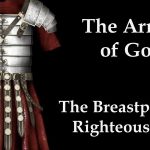
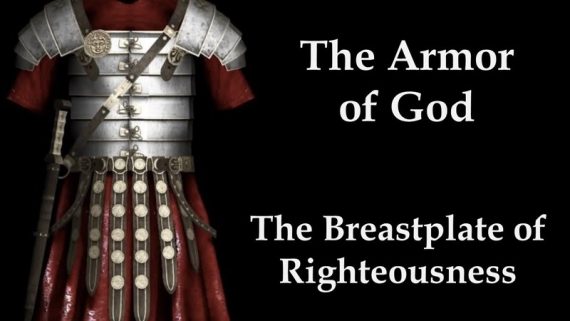
 As the name implies, the breastplate of the Roman soldier was worn on the chest or torso of the soldier. Although at times, they were made out of leather, the breastplates worn by soldiers in Paul’s day were typically made from iron.
As the name implies, the breastplate of the Roman soldier was worn on the chest or torso of the soldier. Although at times, they were made out of leather, the breastplates worn by soldiers in Paul’s day were typically made from iron.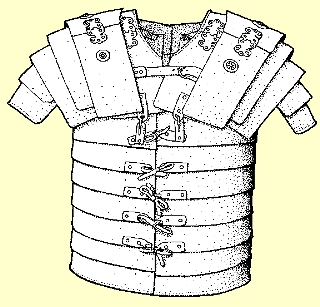 And what was the purpose of the breastplate? It helped protect the soldier’s vital organs, such as the heart, lungs, and the entire digestive tract. If any of these organs were damaged in battle, the soldier was almost certain to die.
And what was the purpose of the breastplate? It helped protect the soldier’s vital organs, such as the heart, lungs, and the entire digestive tract. If any of these organs were damaged in battle, the soldier was almost certain to die. Do you remember the Pharisees? They were Bible scholars. They were experts of the law. Most of them had the entire Torah—the first five books of the Bible—memorized. They knew the history of Israel forward and backward. They prayed and sang the Psalms. They could recite passages from the Prophets.
Do you remember the Pharisees? They were Bible scholars. They were experts of the law. Most of them had the entire Torah—the first five books of the Bible—memorized. They knew the history of Israel forward and backward. They prayed and sang the Psalms. They could recite passages from the Prophets. Scripture also keeps our spiritual lungs breathing deeply from the indwelling life of the Holy Spirit so that we can be guided and shaped into the image of Jesus Christ. Scripture allows us to properly digest and comprehend the things we experience in life so that these experiences can be used to guide and direct ourselves and others on the path toward peace and unity.
Scripture also keeps our spiritual lungs breathing deeply from the indwelling life of the Holy Spirit so that we can be guided and shaped into the image of Jesus Christ. Scripture allows us to properly digest and comprehend the things we experience in life so that these experiences can be used to guide and direct ourselves and others on the path toward peace and unity. Furthermore, even if a judge declares a person to be “not guilty” of a particular crime, this does not mean that the person will not commit that particular crime in the future. So the declaration of “rightness” is only about the present condition of something; it says nothing about the future.
Furthermore, even if a judge declares a person to be “not guilty” of a particular crime, this does not mean that the person will not commit that particular crime in the future. So the declaration of “rightness” is only about the present condition of something; it says nothing about the future.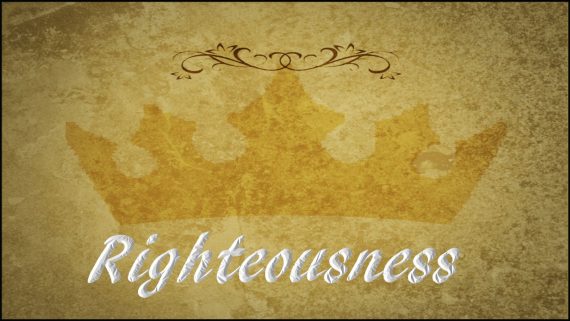
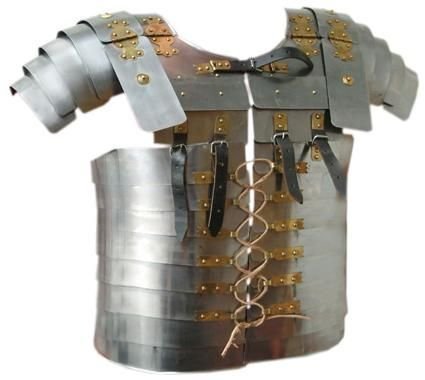 But before we can wear the breastplate, we must have it. And as just indicated, we receive the righteousness of God by faith alone in Jesus Christ alone. We cannot earn or buy the breastplate of righteousness for ourselves. It is the free gift of God to anyone and everyone who simply and only believes in Jesus for it.
But before we can wear the breastplate, we must have it. And as just indicated, we receive the righteousness of God by faith alone in Jesus Christ alone. We cannot earn or buy the breastplate of righteousness for ourselves. It is the free gift of God to anyone and everyone who simply and only believes in Jesus for it.
 After we become a Christian, God begins to deal with us and some of our sinful ways of living, many of which most people don’t even think of as being sinful. As we seek to follow Jesus on the path of discipleship, He begins to show us that some of the things we are doing are not really what we should be doing.
After we become a Christian, God begins to deal with us and some of our sinful ways of living, many of which most people don’t even think of as being sinful. As we seek to follow Jesus on the path of discipleship, He begins to show us that some of the things we are doing are not really what we should be doing.
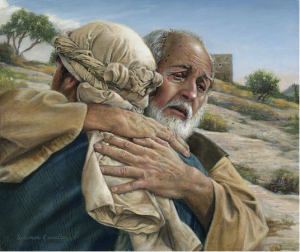 God is watching for our return, and when we turn, and begin to journey back toward fellowship with Him, He casts aside all dignity, and runs with haste to meet us on the road, carrying and helping us when we are tired and weary from the journey. But we must journey back, if we are to return to fellowship in the family.
God is watching for our return, and when we turn, and begin to journey back toward fellowship with Him, He casts aside all dignity, and runs with haste to meet us on the road, carrying and helping us when we are tired and weary from the journey. But we must journey back, if we are to return to fellowship in the family.

 It is often taught that Jesus obeyed the law perfectly because we cannot. Then we are told that when we believe in Jesus for eternal life, He give us His righteousness. He has such an infinite supply of righteousness, that He can pour some of it into us so that we also become righteous.
It is often taught that Jesus obeyed the law perfectly because we cannot. Then we are told that when we believe in Jesus for eternal life, He give us His righteousness. He has such an infinite supply of righteousness, that He can pour some of it into us so that we also become righteous.